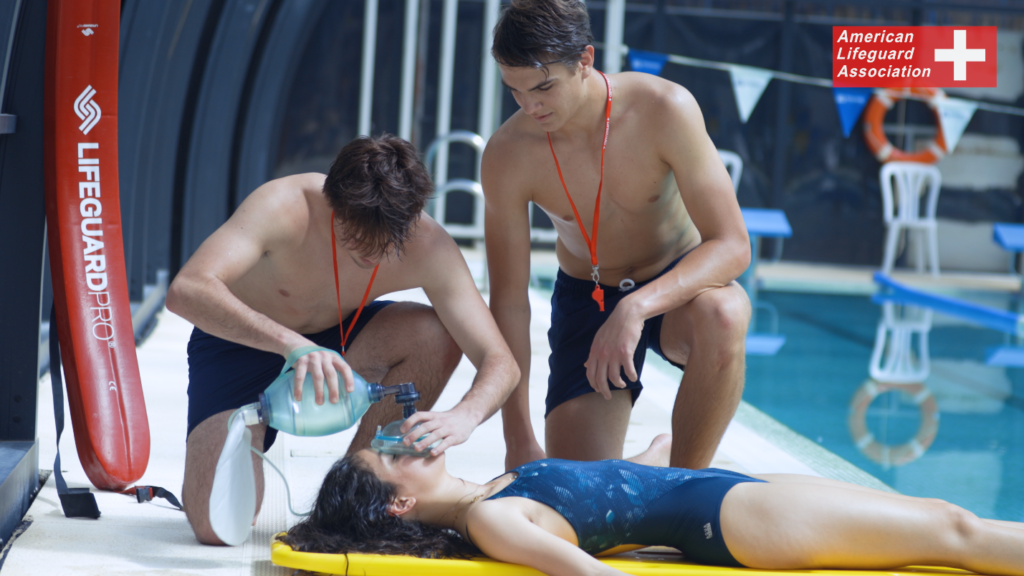Lifeguard classes play a crucial role in preparing individuals for the responsibilities of safeguarding swimmers in aquatic environments. These thorough courses are intended to confer essential skills, knowledge, and certifications that are fundamental for ensuring pool and beach safety.
Understanding Lifeguard Training
Lifeguard training courses are organized to give members a profound understanding of water safety and rescue techniques. Key to this training is modules that cover first aid, CPR (Cardiopulmonary Resuscitation), AED (Automated External Defibrillator) usage, and emergency response procedures. These skills are basic for responding immediately to medical emergencies that might happen in and around water bodies.
Swimming Skills Development
One of the fundamental parts of lifeguard training is the development of strong abilities to swim. Members go through thorough swimming activities to upgrade their perseverance and effectiveness in the water. Authority of different strokes and techniques outfits lifeguards with the ability to quickly arrive at upset swimmers and give timely assistance.
Knowledge of Water Safety
Lifeguard classes accentuate the significance of preplanned measures and proactive surveillance to prevent accidents and guarantee the safety of all pool and beach benefactors. Members learn to distinguish potential hazards, survey dangers, and implement preventive methodologies to moderate risks in aquatic environments. This exhaustive understanding of water safety protocols is essential for maintaining a solid and charming swimming experience for everybody.
Practical Rescue Training
Involved practical training structures a urgent piece of lifeguard classes, allowing members to reenact different rescue situations. Through role-playing activities and reenactments, aspiring lifeguards gain invaluable experience in assessing emergencies, executing rescue techniques, and safely extricating individuals from hazardous situations.
These reproductions are intended to plan lifeguards to answer quickly and really during genuine emergencies, subsequently minimizing gambles and ensuring ideal outcomes.
Legal and Ethical Responsibilities
Notwithstanding practical skills, lifeguard training covers legal commitments and ethical considerations that are inherent to the role. Lifeguards are trained to maintain elevated requirements of professionalism, integrity, and responsibility while on duty.
They learn about legal responsibilities, including duty of care towards benefactors, risk issues, and the ramifications of carelessness. Understanding these legal and ethical viewpoints is pivotal for making informed choices and taking fitting activities in challenging situations.
Physical Fitness Requirements
Lifeguard classes underscore the significance of physical fitness and perseverance. Members go through physical conditioning practices custom fitted to the demands of the role, which include prolonged surveillance, quick response times, and the capacity to perform difficult rescue moves.
By maintaining top physical fitness, lifeguards guarantee that they are completely ready to deal with the physical demands of the job and give powerful assistance during emergencies.
Certification and Career Opportunities
Successful fulfillment of lifeguard classes culminates in certification, which fills in as a perceived qualification for employment in different aquatic facilities and sporting settings. Lifeguards certified through respectable associations are exceptionally pursued for their skill in water safety, rescue techniques, and emergency management.
This certification opens ways to rewarding career opportunities in community pools, beaches, water parks, and other aquatic settings where trained lifeguards are essential for maintaining public safety.
Accessibility of Lifeguard classes
Finding lifeguard classes near me is accessible and helpful for individuals interested in pursuing a career in lifeguarding. Numerous community habitats, aquatic facilities, and instructive institutions offer lifeguard training programs over time. These courses take care of diverse schedules and inclinations, making it achievable for aspiring lifeguards to gain essential skills and certifications in anticipation of their career attempts.
Professional Development
Continued schooling and professional development are encouraged for lifeguards to remain refreshed with the most recent advancements in water safety and rescue techniques. Advanced training courses, workshops, and seminars give opportunities to lifeguards to extend their knowledge base, refine their skills, and upgrade their capability in handling complex rescue situations.
Lifeguards who invest in ongoing professional development lift their capability as well as add to maintaining elevated expectations of safety and greatness in aquatic facilities.
Final Word
Enrolling in lifeguard classes offers numerous benefits for individuals seeking to leave on a fulfilling career in lifeguarding. These courses give a complete establishment in water safety, rescue techniques, and emergency response protocols, ensuring that lifeguards are exceptional to safeguard swimmers and answer really to unexpected emergencies.
With certification from legitimate associations, for example, the American Lifeguard Association, individuals can leave on rewarding careers in aquatic facilities, where their skill and commitment to public safety are esteemed and essential. Whether you’re enhancing your abilities to swim or preparing for the responsibilities of a lifeguard, lifeguard classes give invaluable training that sets you up to have an effect in ensuring the safety and prosperity of others in aquatic environments.
